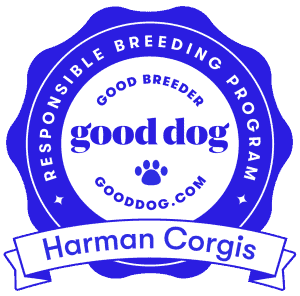Home » Degenerative Myelopathy (DM)
Genetic diseases with simple modes of inheritance
Degenerative Myelopathy (DM)
What is DM?
DM is a neurological disorder that affects the spinal cord. Specifically, myelin, the covering around the nerve fibers that helps nerves conduct electrical impulses breaks down. This disease is much like ALS or Lou Gehrig’s disease in humans.
What are the symptoms?
Symptoms normally begins around age 10. The first nerves affected are those that control the hind legs. Weak rear leg muscles and an abnormal gait are normally the first signs observed. The condition progressively gets worse until the dog is paralyzed. If you have ever seen a dog using a cart for paralyzed rear legs they most likely had DM.
Is there a treatment?
Unfortunately, there is no treatment and the only way to truly diagnose the disease is by looking at the spinal cord after death however, veterinarians use clues such as pain level, genetic testing results, and age to make a presumptive diagnosis.
There are other diseases with similar symptoms such as IVDD which we will discuss later.
What genetics are involved?
The gene involved is SOD1(A) on chromosome 31.
Remember from high school biology that you inherit one copy of a gene from each of your parents. Dogs are the same, they inherit one copy of this gene from each parent.
Three scenarios may occur
1. A dog may inherit a normal gene from both parents.
These dogs are called “clear”. They are not at risk of developing DM themselves nor can they pass on the mutated gene to their offspring.
2. A dog may inherit a normal gene from one parent and a mutated gene from the other parent.
These dogs are called “carriers”. They are not at risk of developing the disease themselves but they can pass on the mutation to their offspring therefore should be bred to a DM clear individual to prevent the chance of producing offspring that may be at risk.
3. A dog may inherit 2 mutated genes.
These dogs are called “at risk.” Just because a dog is at risk it does not mean that it will develop the disease. This mutation is thought to have incomplete penetrance meaning that other genetic and environmental factors play a role in the development of the disease.
For breeders, “at risk” individuals will always pass on a copy of this mutation to their offspring so at risk individuals must only be bred to DM clear mates so that at risk puppies are not produced.
Genetic testing & our breeding program
Genetic testing has come a long way and today it is easy to test for this mutation. We test ALL of our breeding dogs and then use this information to plan matings to ensure that no “at risk” puppies are produced.
Since we use genetic results to plan matings and neither “clear” or “carrier” individuals will develop DM, we have not eliminated all carrier or at risk individuals from our breeding program.
Here is why we still have these individuals in our breeding program.
1. We are focused on raising the best overall dog that we can possibly raise. This means that we also focus on structure, temperament and meeting breed standards. Right now there are lots of individuals in this breed that have poor structure-which may lead to back and hip problems, bad temperaments and do not meet breed standards yet may be clear for DM. We want to create the best dogs possible therefore we are not willing to compromise structure, temperament or breed standards just to have DM clear dogs because neither carrier nor clear individuals are at risk of developing this disease.
2. Scientists are making new discoveries every day and they may discover that the SOD1 gene may actually be linked to another gene possibly beneficial that we would not want to lose.
3. OFA data reports that only 13.4% of Pembrokes are clear for DM so by only breeding clear individuals to other clear individuals within such a small gene pool, inbreeding drastically increases. Inbreeding within a small population often results in an increase of diseases caused by recessive mutations such as cancers.
So for us, we will continue to test all dogs in our breeding program and use this data to plan matings so that no “at risk” puppies will be produced.
We can perform an individual DM test on a puppy through Gensol for $30 and will work with breeders to help them select dogs with a DM status that fits their program.





